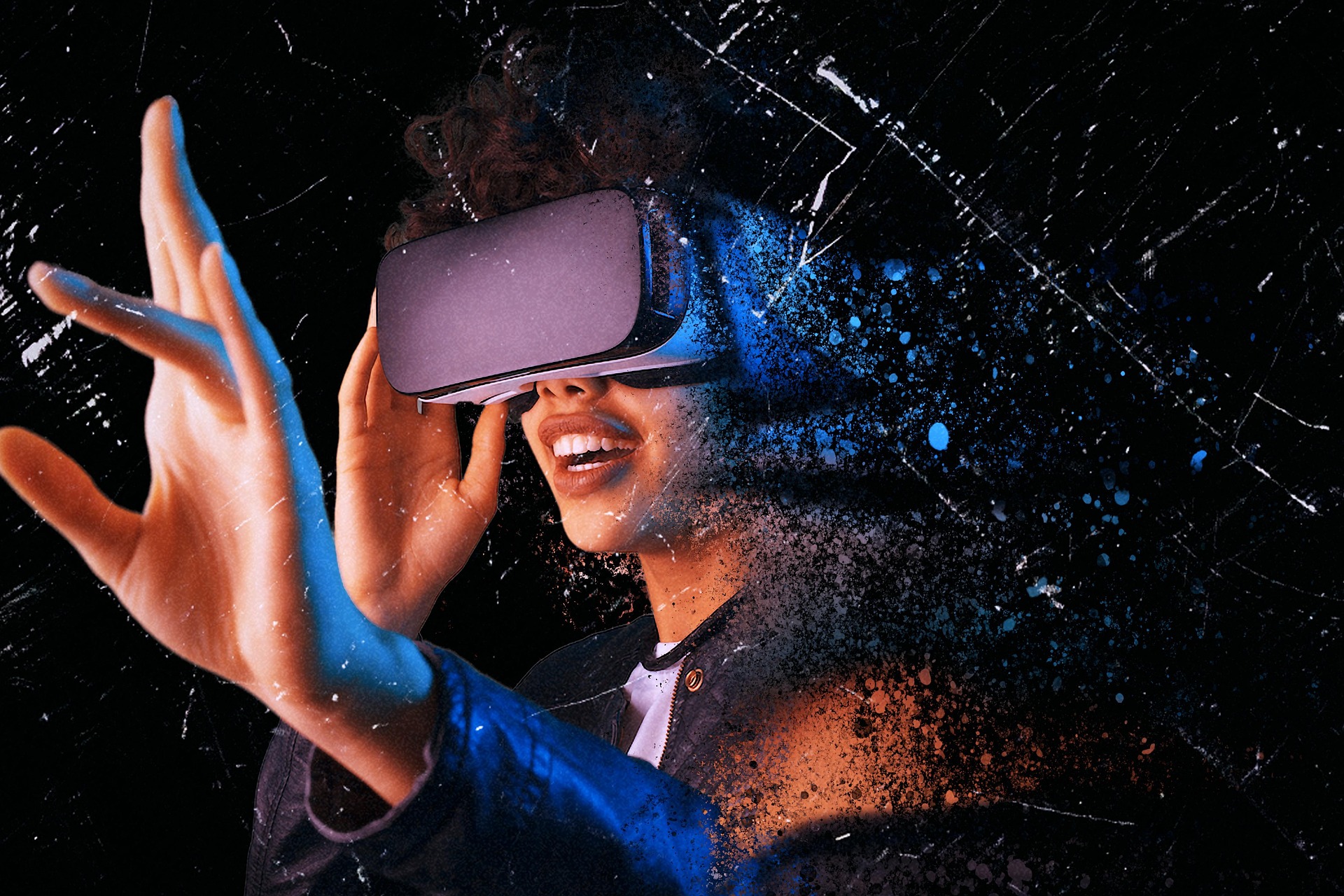As we move deeper into 2025, the metaverse is evolving from a niche concept into a mainstream platform with transformative implications for various industries. What was once primarily associated with gaming has now expanded into sectors such as retail, real estate, education, and entertainment. Fueled by advancements in virtual and augmented reality (VR and AR) technologies, alongside the integration of blockchain ecosystems, the metaverse offers a more immersive digital experience that blends physical and virtual realities in unprecedented ways.
Technological innovations driving Metaverse growth
The expansion of the metaverse is closely tied to the evolution of VR and AR technologies, which provide users with highly immersive experiences within digital environments. Leading companies are developing increasingly sophisticated VR devices that offer enhanced realism, allowing users to engage with virtual spaces as if they were physically present. Furthermore, blockchain technology underpins much of the metaverse’s economy, providing secure transactions, digital asset ownership, and verifiable provenance. These advancements ensure that the metaverse operates as a functional and trustworthy space for both personal and professional use.
Revolutionizing retail with virtual showrooms and shopping
One of the most striking developments in the metaverse is its impact on the retail sector. Virtual storefronts and digital showrooms are rapidly gaining traction, allowing consumers to interact with products in a 3D virtual space before making a purchase. This immersive shopping experience replicates the tactile and interactive qualities of traditional retail but offers the added benefit of accessibility from anywhere in the world. In addition, brands are capitalizing on the opportunity to create digital-only products and services, such as virtual clothing lines for avatars, further enhancing consumer engagement in a digital-first world.
Leading brands are already investing heavily in metaverse platforms such as Decentraland and Roblox, creating dedicated virtual spaces where consumers can explore, socialize, and shop. This shift is not only altering consumer behaviors but also aligning with the preferences of younger, tech-savvy audiences who value digital experiences. The rise of virtual retail is also helping brands to better engage with their communities, offering experiences that go beyond simple transactions.
Real estate in the Metaverse: Virtual properties and investments
In parallel with retail, the real estate sector is experiencing a seismic shift due to the metaverse. Digital land is now a sought-after asset within virtual platforms like Decentraland and The Sandbox. These virtual properties are being bought, sold, and developed for a range of purposes, from commercial ventures to social gathering spaces. The appeal lies not only in the novelty of virtual real estate but also in its potential for long-term value as these spaces become more integrated into daily life. Investors are purchasing these digital assets, hoping that the growing popularity of the metaverse will drive up demand for prime virtual locations, similar to traditional real estate investments.
In addition, virtual properties are being used for a wide range of activities, from hosting events to opening virtual storefronts, further integrating the metaverse into business strategies. As the demand for virtual spaces continues to grow, real estate developers are adapting by creating innovative, interactive experiences that mirror physical-world properties while offering new possibilities for creativity and engagement.
Blurring the line between digital and physical realities
The applications of the metaverse extend well beyond retail and real estate. The entertainment, education, and social sectors are also embracing the potential of immersive virtual environments. Virtual events, such as concerts, conferences, and art exhibitions, are becoming more prevalent, providing a new level of access and engagement for global audiences. These events leverage VR and AR to create dynamic, interactive experiences that allow participants to immerse themselves in different environments, enhancing social interaction and cultural exchange in a way that was previously not possible.
In education, the metaverse is poised to revolutionize traditional learning by offering virtual classrooms and campuses where students can engage with content and peers in an interactive, personalized manner. This approach can break down geographical barriers, enabling students from diverse backgrounds to access high-quality education through immersive experiences that go beyond the limits of conventional online learning.
Challenges and considerations for the Metaverse’s future
While the growth of the metaverse offers exciting possibilities, it also brings several challenges that need careful attention:
- Security and Privacy: As the metaverse becomes a hub for digital interactions, ensuring the safety and privacy of users’ data is critical. Blockchain technology provides some security benefits, but the complex and decentralized nature of the metaverse requires continuous efforts to prevent data breaches and protect user identities.
- Regulatory Issues: The global nature of the metaverse introduces regulatory challenges. Different countries have varying laws regarding digital ownership, intellectual property, and online behavior. Creating clear and universal standards for governance and accountability is essential to ensure fairness and transparency across virtual platforms.
- Digital Divide: The technology required to fully engage with the metaverse, such as high-speed internet and advanced VR headsets, is not accessible to everyone. Ensuring that marginalized and underserved populations have the resources to participate in this new virtual landscape is essential for equitable access to opportunities within the metaverse.
A collaborative and responsible approach
The expansion of the metaverse is undoubtedly reshaping how we live, work, and interact with one another. As companies, governments, and communities continue to explore the metaverse’s potential, a balanced approach that addresses security, regulation, and inclusivity will be necessary to unlock its full capabilities. By fostering collaboration between stakeholders and prioritizing ethical considerations, the metaverse can evolve into a space that benefits users from all walks of life, offering new forms of connection, creativity, and opportunity in both the virtual and physical worlds.





